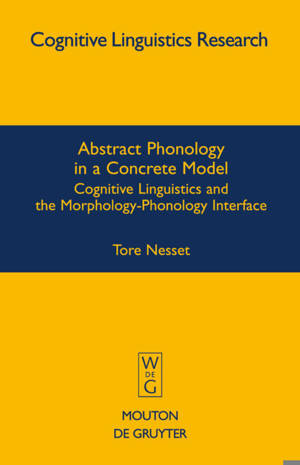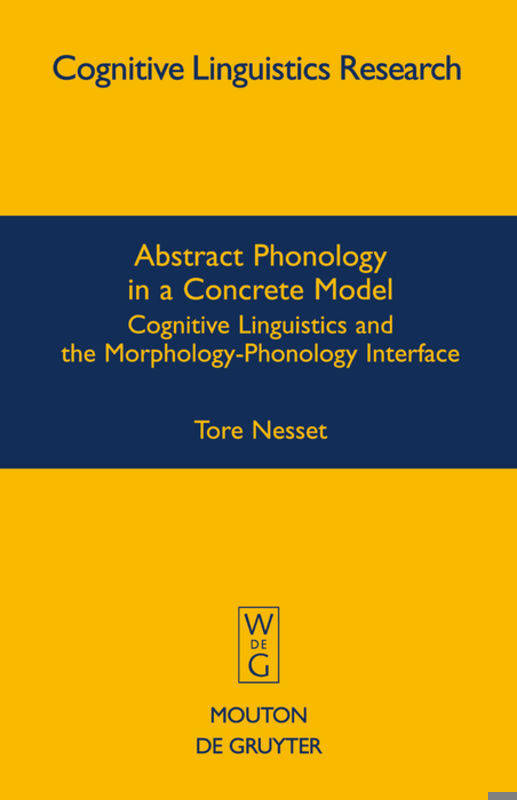
- Retrait gratuit dans votre magasin Club
- 7.000.000 titres dans notre catalogue
- Payer en toute sécurité
- Toujours un magasin près de chez vous
- Retrait gratuit dans votre magasin Club
- 7.000.0000 titres dans notre catalogue
- Payer en toute sécurité
- Toujours un magasin près de chez vous
Abstract Phonology in a Concrete Model
Cognitive Linguistics and the Morphology-Phonology Interface
Tore NessetDescription
This book is relevant for phonologists, morphologists, Slavists and cognitive linguists, and addresses two questions: How can the morphology-phonology interface be accommodated in cognitive linguistics? Do morphophonological alternations have a meaning? These questions are explored via a comprehensive analysis of stem alternations in Russian verbs. The analysis is couched in R.W. Langacker's Cognitive Grammar framework, and the book offers comparisons to other varieties of cognitive linguistics, such as Construction Grammar and Conceptual Integration. The proposed analysis is furthermore compared to rule-based and constraint-based approaches to phonology in generative grammar.
Without resorting to underlying representations or procedural rules, the Cognitive Linguistics framework facilitates an insightful approach to abstract phonology, offering the important advantage of restrictiveness. Cognitive Grammar provides an analysis of an entire morphophonological system in terms of a parsimonious set of theoretical constructs that all have cognitive motivation. No ad hoc machinery is invoked, and the analysis yields strong empirical predictions. Another advantage is that Cognitive Grammar can identify the meaning of morphophonological alternations. For example, it is argued that stem alternations in Russian verbs conspire to signal non-past meaning.
This book is accessible to a broad readership and offers a welcome contribution to phonology and morphology, which have been understudied in cognitive linguistics.
Spécifications
Parties prenantes
- Auteur(s) :
- Editeur:
Contenu
- Nombre de pages :
- 260
- Langue:
- Anglais
- Collection :
- Tome:
- n° 40
Caractéristiques
- EAN:
- 9783110203615
- Date de parution :
- 15-07-08
- Format:
- Livre relié
- Format numérique:
- Genaaid
- Dimensions :
- 160 mm x 234 mm
- Poids :
- 498 g

Les avis
Nous publions uniquement les avis qui respectent les conditions requises. Consultez nos conditions pour les avis.






